Manjulata Reconciles Herself to Live Alone!
Life of a woman is full of challenges and obstacles, right from shouldering household responsibility and commitments at home and managing fulltime at workplace. The life of a working woman is revolving and juggling with numerous responsibilities at work place, some of them are loaded with daily routine life at home. Many women are grinded between these two phases of life running behind office work and managing all domestic affairs. Previously women were educated for the sake of getting married to better candidates and starting new family. But, nowadays they utilize their education and skill productively. Here is a story of a village girl, Manjulata Mohanta, who struggles to reconcile her commitments for the family.
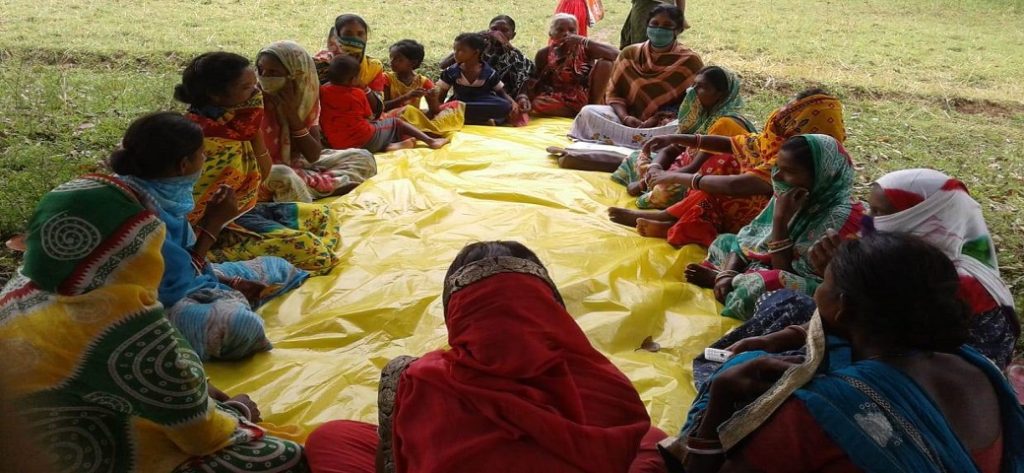 Manjulata, is a volunteer who serve as a connect between the school and parents. She supports the school teachers as well as parents in ensuring that children are regular in schools, not engaged in domestic work or whiling away time, they get school uniforms, bags, stationery, properly cooked mid-day meal, etc.
Manjulata, is a volunteer who serve as a connect between the school and parents. She supports the school teachers as well as parents in ensuring that children are regular in schools, not engaged in domestic work or whiling away time, they get school uniforms, bags, stationery, properly cooked mid-day meal, etc.
Manjulata was born and brought up in a farmer’s family along with five siblings – four sisters and one brother. Her father used to do agricultural work and daily wages work, and her mother is engaged in cooking midday meal in a government run primary school. From an early age, she understood the survival strategy like fighting back the poverty boldly and bravely. Despite financial hardship, she had completed her higher secondary education.
Her dream of studying higher education remained in halfway due to financial constraints. She was compelled to acquaint with daily labour work like, pond digging, iron rods lifting or cutting, leaf plates making, and continued to supplement her family income. During that period, she got a marriage proposal from her boyfriend having government job. Unfortunately, the young man betrayed Manjulata and created nuisance, even one day she was kidnapped by his friends and sexually abused and harassed for three days. After some days the kidnappers released her and threatened to kill her if she suits any Police case. Initially, she couldn’t sleep being plagued by nightmares. It became difficult for her to trust people. Due to heavy stress and depression she attempted to commit suicide by jumping to the waterfall at Bhimkund. But, the will of God was something else! Immediately some local people rescued her and admitted in hospital. She got a new life!
Two local UP School teachers namely Mr. Biswanath Bindhani and Mr. Nalaraj Sethy counselled Manjulata to overcome from the tragedy. She got engaged in different co-curricular activities of the school. In 2007, she found a job in ‘Pratham Odisha’ as Block Coordinator where she was facilitating training to Cluster Resource Coordinators on teaching techniques. She became independent and self-reliant when received handsome monthly salary. She could spend some amount of money on her sisters’ study and marriages. She reflects, “Now, I am self-reliant, earning through a dignified job and living an independent life. Why should I go for suicide instead of giving back to society using whatever I have learnt, getting a new life?’’
In 2010, she resigned from Pratham Odisha and applied for a job in government sector but could not succeed. Then she joined CYSD as a ‘Community Teacher’ in its Child Development Project at Thakurmunda for girls’ impact education program. At the closure of impact education program, she was recognized as the best teacher out of 36 teachers.
Then, she was involved in “Combatting Child Domestic Labour” program of CYSD, as community volunteer-teacher and assigned to look after Benuadhar village of Bhaliadal Gram Panchayat, Thakurmunda. For easy and better monitoring purpose, she used to stay with the community people. Having long experience in education systems, she applies those in community special coaching centers. She has been guiding and counseling young girls regarding menstrual hygiene and sex education to protect themselves from harmful diseases.
Due to single, sometime people of her community pass filthy comments, but this does not make any different for Manjulata. She reconciles to live alone. She is determined not to tie the knot, because she knows the art of living without a man’s support. She owns a motorcycle for movement, has saved some money in bank and able to support her family out of her monthly income.
Moreover, Manjulata is well capacitated in the area of interpersonal development which helps her leading a confident and dignified life in the social sector. She has drawn a bead on awareness building of youth to respect women and protect young girls.
Manjulata says, “I don’t wish people to look at me and feel pity. Like a light, the time will pass away. I’m still alive. I thank God for giving me such lesson! And I want to help prevent this not to happen anyone else.”



 Madhaba Muduli is a small tribal landholder from P. Sujuli village in Nandigam Gram Panchayat of Koraput district. With technical support and guidance of CYSD programme team, he along with a fellow villager Chittam Paraja decided to dig a well of 25ft depth on his own land for better irrigation. In the FY-2019, along with support of Rs.138500/- from ITDA, Koraput under the MGNREGA Plan, the well was successfully dug.
Madhaba Muduli is a small tribal landholder from P. Sujuli village in Nandigam Gram Panchayat of Koraput district. With technical support and guidance of CYSD programme team, he along with a fellow villager Chittam Paraja decided to dig a well of 25ft depth on his own land for better irrigation. In the FY-2019, along with support of Rs.138500/- from ITDA, Koraput under the MGNREGA Plan, the well was successfully dug.

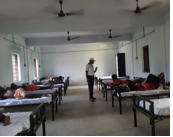 Sudden lockdown declared by the Government owing to the pandemic created fear and anxiety in the minds of innocent tribal women, children and old age people. Umachanda, was the first person who motivated a band of volunteers of CYSD to create mass awareness among the tribal people, especially in Bonda Ghati (the most underdeveloped area of Malkangiri). From 23rd March, 2020 Umachanda also mobilized other volunteers to join his crew and organized awareness campaigns in the communities about use of facemask regularly, practices of frequent hand wash, maintaining social distance, etc. using loud speaker / mike. He covered around 42 villages, distributed survival kits to 150 families and hygiene kits to 120 families.
Sudden lockdown declared by the Government owing to the pandemic created fear and anxiety in the minds of innocent tribal women, children and old age people. Umachanda, was the first person who motivated a band of volunteers of CYSD to create mass awareness among the tribal people, especially in Bonda Ghati (the most underdeveloped area of Malkangiri). From 23rd March, 2020 Umachanda also mobilized other volunteers to join his crew and organized awareness campaigns in the communities about use of facemask regularly, practices of frequent hand wash, maintaining social distance, etc. using loud speaker / mike. He covered around 42 villages, distributed survival kits to 150 families and hygiene kits to 120 families.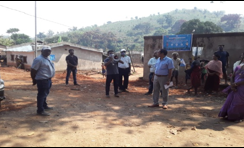 Both the Block Administration and District Administration were amazed seeing the enthusiasm of Umachanda. To his surprise, the PD-DRDA helped in obtaining a Covid-19 Entry Pass through the BDO, Khairiput and allowed him to continue this novel work in this pandemic. The BDO and PD-DRDA sought the support and cooperation of Umachanda during their relief mission at Bonda Ghati for helping the Bonda people. This mission would not have become successful without Umachanda’s active involvement.
Both the Block Administration and District Administration were amazed seeing the enthusiasm of Umachanda. To his surprise, the PD-DRDA helped in obtaining a Covid-19 Entry Pass through the BDO, Khairiput and allowed him to continue this novel work in this pandemic. The BDO and PD-DRDA sought the support and cooperation of Umachanda during their relief mission at Bonda Ghati for helping the Bonda people. This mission would not have become successful without Umachanda’s active involvement.
 In the meantime, the Government of Odisha made provision for promotion and implementation of “Mo Upakari Bagicha” scheme to help enrich the nutritional deficiency of adolescents, pregnant and lactating mothers. Pravati’s parents prepared a nutritional kitchen garden in their backyard field. Pravati being a sponsor child of CYSD, the project supported her family with technical guidance and facilitated vegetable seeds from Odisha Livelihoods Mission (OLM) to initiate nutritional gardening. Pravati with her siblings’ support took proper care of the kitchen garden. Gradually, the garden grew up with varieties of vegetable plants like, Bitter gourd, Ridge gourd, Spinach, Brinjal, green chili, lemon, green banana and Palak leaves.
In the meantime, the Government of Odisha made provision for promotion and implementation of “Mo Upakari Bagicha” scheme to help enrich the nutritional deficiency of adolescents, pregnant and lactating mothers. Pravati’s parents prepared a nutritional kitchen garden in their backyard field. Pravati being a sponsor child of CYSD, the project supported her family with technical guidance and facilitated vegetable seeds from Odisha Livelihoods Mission (OLM) to initiate nutritional gardening. Pravati with her siblings’ support took proper care of the kitchen garden. Gradually, the garden grew up with varieties of vegetable plants like, Bitter gourd, Ridge gourd, Spinach, Brinjal, green chili, lemon, green banana and Palak leaves. During Covid-19 pandemic, as an impact her father could not get job opportunity regularly to fulfil the basic needs of his family. Green vegetable and leafy items for their food plate was a dream. But, surprisingly the initiative of Pravati supported her family with green fresh veg food intake.
During Covid-19 pandemic, as an impact her father could not get job opportunity regularly to fulfil the basic needs of his family. Green vegetable and leafy items for their food plate was a dream. But, surprisingly the initiative of Pravati supported her family with green fresh veg food intake. After Kharif they are also planning to continue vegetable cultivaion in Rabi season. Like Pravati many adolescents have adopted kitchen gardens and engaged themselves in nutri gardening work and taking green vegetable in their food plates to reduce nutritional deficiencies.
After Kharif they are also planning to continue vegetable cultivaion in Rabi season. Like Pravati many adolescents have adopted kitchen gardens and engaged themselves in nutri gardening work and taking green vegetable in their food plates to reduce nutritional deficiencies.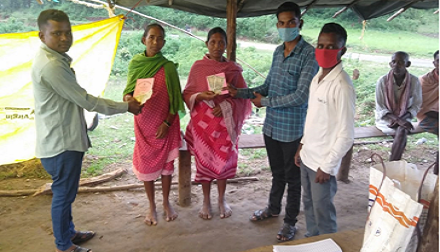
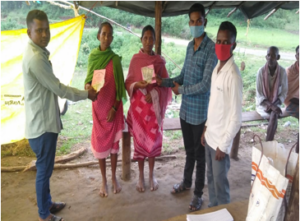 Boipariguda being the operational area of CYSD, while in the process of expanding reach of social protection schemes and entitlements to the marginalised individuals and families in Muduliguda village of Kollar Gram Panchayat under Boipariguda block, it was found that five eligible household heads, like Padu Petia, Bendri Chhendia, Samari Badnayak, Bati Badnayak and Damai Badnayak have crossed 60 years of age and eligible for getting entitlements like old-age pension from the government, but were debarred from it. After getting deeper into the matter and further discussions, one of the beneficiaries, Ms. Samari Badnayak, age 62 years, said, “We have visited to our Panchayat office several times to apply for the old-age pension, but no officers including the Sarapanch listened to us. We lost our last hope and everything left on the God”. With the intervention of CYSD team, a village level meeting was organised where it was decided to write a letter to the concerned Sarpanch to consider the application of five aged beneficiaries for the pension. CYSD team continuously visited the Panchayat office to follow up the matter with Sarapanch. After constant engagement and persuasion, the Sarapanch enrolled the 5 eligible aged persons and they have been receiving the entitlements starting from September 2020.
Boipariguda being the operational area of CYSD, while in the process of expanding reach of social protection schemes and entitlements to the marginalised individuals and families in Muduliguda village of Kollar Gram Panchayat under Boipariguda block, it was found that five eligible household heads, like Padu Petia, Bendri Chhendia, Samari Badnayak, Bati Badnayak and Damai Badnayak have crossed 60 years of age and eligible for getting entitlements like old-age pension from the government, but were debarred from it. After getting deeper into the matter and further discussions, one of the beneficiaries, Ms. Samari Badnayak, age 62 years, said, “We have visited to our Panchayat office several times to apply for the old-age pension, but no officers including the Sarapanch listened to us. We lost our last hope and everything left on the God”. With the intervention of CYSD team, a village level meeting was organised where it was decided to write a letter to the concerned Sarpanch to consider the application of five aged beneficiaries for the pension. CYSD team continuously visited the Panchayat office to follow up the matter with Sarapanch. After constant engagement and persuasion, the Sarapanch enrolled the 5 eligible aged persons and they have been receiving the entitlements starting from September 2020.
 Chaitana Santa, a young man of 30 years, is basically a farmer from Boipariguda Block of Koraput district. But his income was not sufficient to maintain his family, because of which he had opted for seasonal migration to nearby town of Jaypure & Koraput in search of job. But this Covid-19 pandemic created a lot of problem for him when he was not able to move anywhere for work. His hardship became worst as he could not sell the harvested farm produces during the period March-August 2020.
Chaitana Santa, a young man of 30 years, is basically a farmer from Boipariguda Block of Koraput district. But his income was not sufficient to maintain his family, because of which he had opted for seasonal migration to nearby town of Jaypure & Koraput in search of job. But this Covid-19 pandemic created a lot of problem for him when he was not able to move anywhere for work. His hardship became worst as he could not sell the harvested farm produces during the period March-August 2020.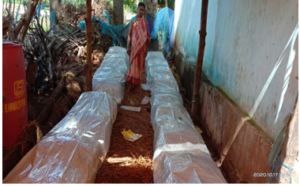 Basanti Mali, a passionate and courageous woman of 45. She works as a migrant labourer in nearby town, like Jyapore & Koraput to supplement her family income along with her husband, a daily labour. Still the income was not sufficient for maintaining the entire family. Due to Covid-19 pandemic lockdown and shutdown, Basanti was totally disheartened. She was not allowed to go outside for work. Being at home and sitting idle, she was desperately wondering for an opportunity for livelihood. Luckily, she got to know about the Mushroom Production Training program of CYSD and went through the need based assessment process. Finally, she enrolled herself in the training program, completed the training, and obtained a completion certificate.
Basanti Mali, a passionate and courageous woman of 45. She works as a migrant labourer in nearby town, like Jyapore & Koraput to supplement her family income along with her husband, a daily labour. Still the income was not sufficient for maintaining the entire family. Due to Covid-19 pandemic lockdown and shutdown, Basanti was totally disheartened. She was not allowed to go outside for work. Being at home and sitting idle, she was desperately wondering for an opportunity for livelihood. Luckily, she got to know about the Mushroom Production Training program of CYSD and went through the need based assessment process. Finally, she enrolled herself in the training program, completed the training, and obtained a completion certificate.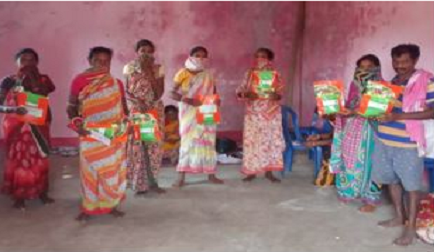
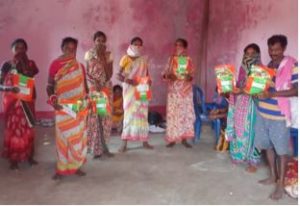 In order to give some respite to the poor tribals, the Child Development Project team of CYSD, in consultation with the community people, proposed to the Block and District Administration for promotion of individual vegetable cultivation projects, in the form of nutrition garden model, under MGNREGS. The District Administration had agreed with the proposal and advised Project Team to extend required support to the Kolnara Block Administration in mobilising the community. As per the proposed model, each beneficiary was suggested to get 34 man-days for land development and fencing of garden area measuring 1200 sqft.
In order to give some respite to the poor tribals, the Child Development Project team of CYSD, in consultation with the community people, proposed to the Block and District Administration for promotion of individual vegetable cultivation projects, in the form of nutrition garden model, under MGNREGS. The District Administration had agreed with the proposal and advised Project Team to extend required support to the Kolnara Block Administration in mobilising the community. As per the proposed model, each beneficiary was suggested to get 34 man-days for land development and fencing of garden area measuring 1200 sqft.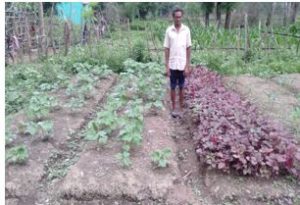 After completion of land preparation, getting required quantity of vegetable seeds was a big challenge. Whatever vegetable seeds was supplied by the Odisha Livelihoods Mission (OLM) to the beneficiaries, that was not adequate to cover the entire garden area. So, the Project Team approached to the Deputy Director of Horticulture, Rayagada to provision seeds for the left out beneficiaries. Considering the gamut of situation, the Deputy Director, Horticulture was agreed and supplied vegetables seeds in mini kit (13 varieties of vegetable seeds) for distribution to the remaining beneficiaries of the Project area.
After completion of land preparation, getting required quantity of vegetable seeds was a big challenge. Whatever vegetable seeds was supplied by the Odisha Livelihoods Mission (OLM) to the beneficiaries, that was not adequate to cover the entire garden area. So, the Project Team approached to the Deputy Director of Horticulture, Rayagada to provision seeds for the left out beneficiaries. Considering the gamut of situation, the Deputy Director, Horticulture was agreed and supplied vegetables seeds in mini kit (13 varieties of vegetable seeds) for distribution to the remaining beneficiaries of the Project area.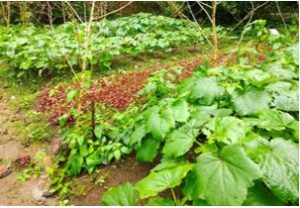 “Indeed, this agriculture input support ‘vegetable seeds’ is a great help for us to meet the vegetable requirements of our family as well as to fulfil the nutritional deficiencies and sell the surplus ones to procure allied household items”, says Suba Kantabansa, a successful vegetable grower from Gouda Lelibadi village. “We are really thankful to CYSD Team for restoring our livelihoods and supporting timely to get out of this pandemic burden”, added delighted Suba.
“Indeed, this agriculture input support ‘vegetable seeds’ is a great help for us to meet the vegetable requirements of our family as well as to fulfil the nutritional deficiencies and sell the surplus ones to procure allied household items”, says Suba Kantabansa, a successful vegetable grower from Gouda Lelibadi village. “We are really thankful to CYSD Team for restoring our livelihoods and supporting timely to get out of this pandemic burden”, added delighted Suba.
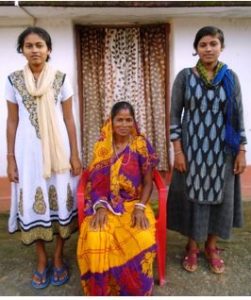 Being a farmer’s daughter, after her marriage Manju was observing that her father-in-law had been practicing broadcasting method in paddy cultivation. Out of 3 acres of land, production of paddy comes maximum up to 12 quintals per year. Manju, with confidence, insisted her father-in-law to change the existing traditional pattern of cultivation and to adopt line sowing for better yield and she committed to support in applying her advanced knowledge gained from the training imparted by CYSD in 1996. But Mahendra did not accept Manji’s advice. Rather, reluctantly allowed Manju and her husband Dhurba to start line sowing paddy cultivation in one acre of land on trial basis. Surprisingly, the result was very good – the production increased to 8 quintals from 4 quintals. Since then not only her family members accepted this innovative method of agriculture, but the entire villagers of Taramara adopted line sowing method after seeing the magical progress brought out by Manju.
Being a farmer’s daughter, after her marriage Manju was observing that her father-in-law had been practicing broadcasting method in paddy cultivation. Out of 3 acres of land, production of paddy comes maximum up to 12 quintals per year. Manju, with confidence, insisted her father-in-law to change the existing traditional pattern of cultivation and to adopt line sowing for better yield and she committed to support in applying her advanced knowledge gained from the training imparted by CYSD in 1996. But Mahendra did not accept Manji’s advice. Rather, reluctantly allowed Manju and her husband Dhurba to start line sowing paddy cultivation in one acre of land on trial basis. Surprisingly, the result was very good – the production increased to 8 quintals from 4 quintals. Since then not only her family members accepted this innovative method of agriculture, but the entire villagers of Taramara adopted line sowing method after seeing the magical progress brought out by Manju.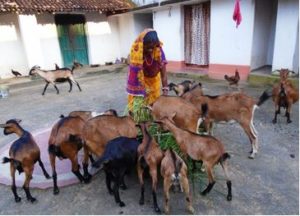 Educating her 3 daughters and giving one daughter’s marriage could only possible when Manju became an active member of Taramara Women’s SHG group promoted by the Child Development Project of CYSD. She was motivated to initiate a goat rearing project through availing a loan of Rs.5000 from the SHG. With the amount she procured 3 female goats in 2008 to start goat rearing in a small way and later received another she goat as gift from her father. With the proper care, she could increase the goat population up to 15 within 3 years’ time. Meantime, she has repaid the loan taken from the SHG. “We are living a happy life and the goat rearing is the real source of our happiness. We are getting food from agriculture, but meeting other household requirements from goat rearing. At the time of financial need, we needn’t have to borrow money from anybody, but we meet the requirement by selling a goat”, shared Manju delightfully while paying her thankfulness to CYSD team.
Educating her 3 daughters and giving one daughter’s marriage could only possible when Manju became an active member of Taramara Women’s SHG group promoted by the Child Development Project of CYSD. She was motivated to initiate a goat rearing project through availing a loan of Rs.5000 from the SHG. With the amount she procured 3 female goats in 2008 to start goat rearing in a small way and later received another she goat as gift from her father. With the proper care, she could increase the goat population up to 15 within 3 years’ time. Meantime, she has repaid the loan taken from the SHG. “We are living a happy life and the goat rearing is the real source of our happiness. We are getting food from agriculture, but meeting other household requirements from goat rearing. At the time of financial need, we needn’t have to borrow money from anybody, but we meet the requirement by selling a goat”, shared Manju delightfully while paying her thankfulness to CYSD team.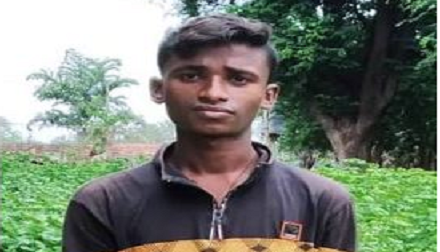
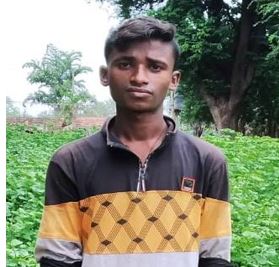 Korukonda block being the operational area of CYSD Child Development Project, this case came to the notice of its Program Team. A counselling team of the project encouraged Ratu to continue his study, but it was a bit difficult task for the team to persuade a small child for continuing his education who seemed quite disinterested to pursue his higher study. After continuous visit to his home accompanying a local community mobiliser, the project team counselled him including his parents and eventually Ratu backed to school in Class-VII.
Korukonda block being the operational area of CYSD Child Development Project, this case came to the notice of its Program Team. A counselling team of the project encouraged Ratu to continue his study, but it was a bit difficult task for the team to persuade a small child for continuing his education who seemed quite disinterested to pursue his higher study. After continuous visit to his home accompanying a local community mobiliser, the project team counselled him including his parents and eventually Ratu backed to school in Class-VII.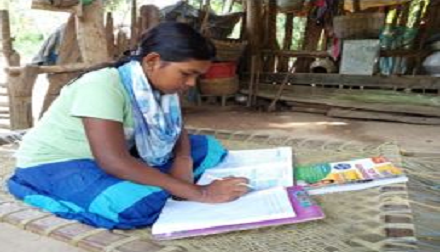
 Mencha, a 45 years old widow from Hatigoda tribal dominated remote village in Thakurmunda block of Mayurbhanj district took a great challenge in nurturing her 3 children – two daughters and one son, when her husband – Benudhar Gaipai passed away due to serious illness in 2017. That time, her elder daughter Anima was about to appear the High School Certificate Examination in two days ahead. Anima managed to complete her examination in First Division securing 63% marks and now continuing her higher study in Dharanidhar Maha Vidyalaya, Kendujhar. The second daughter, Pratima has been studying in Draupadi Girls’ High School, Nisaposi from 8th Std. with all sincerity and her participation in various programmes is remarkable.
Mencha, a 45 years old widow from Hatigoda tribal dominated remote village in Thakurmunda block of Mayurbhanj district took a great challenge in nurturing her 3 children – two daughters and one son, when her husband – Benudhar Gaipai passed away due to serious illness in 2017. That time, her elder daughter Anima was about to appear the High School Certificate Examination in two days ahead. Anima managed to complete her examination in First Division securing 63% marks and now continuing her higher study in Dharanidhar Maha Vidyalaya, Kendujhar. The second daughter, Pratima has been studying in Draupadi Girls’ High School, Nisaposi from 8th Std. with all sincerity and her participation in various programmes is remarkable.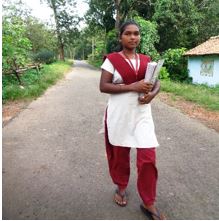 Being an Anganwadi Worker, Mencha manages a 4-member family with limited remuneration including children’s education. Knowing the value of education, she tries her level best to impart better higher education to her children. They have only a small homestead land of 0.30 Acre.
Being an Anganwadi Worker, Mencha manages a 4-member family with limited remuneration including children’s education. Knowing the value of education, she tries her level best to impart better higher education to her children. They have only a small homestead land of 0.30 Acre.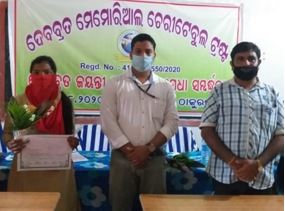 Being a sponsored child of CYSD’s Child Development Project since 2020, Pratima has been supported for her education in particular and Draupadi Girls’ High School, Nisaposi in general in terms of infrastructure, water facility, Computer lab, Library, study materials in every year, training, orientation & exposure to students & teachers. This helped Pratima a lot to perform well in her study. As a sponsor child, her family also availed varied support from CYSD including dry ration and hygiene kits during this Covid-19 pandemic.
Being a sponsored child of CYSD’s Child Development Project since 2020, Pratima has been supported for her education in particular and Draupadi Girls’ High School, Nisaposi in general in terms of infrastructure, water facility, Computer lab, Library, study materials in every year, training, orientation & exposure to students & teachers. This helped Pratima a lot to perform well in her study. As a sponsor child, her family also availed varied support from CYSD including dry ration and hygiene kits during this Covid-19 pandemic.